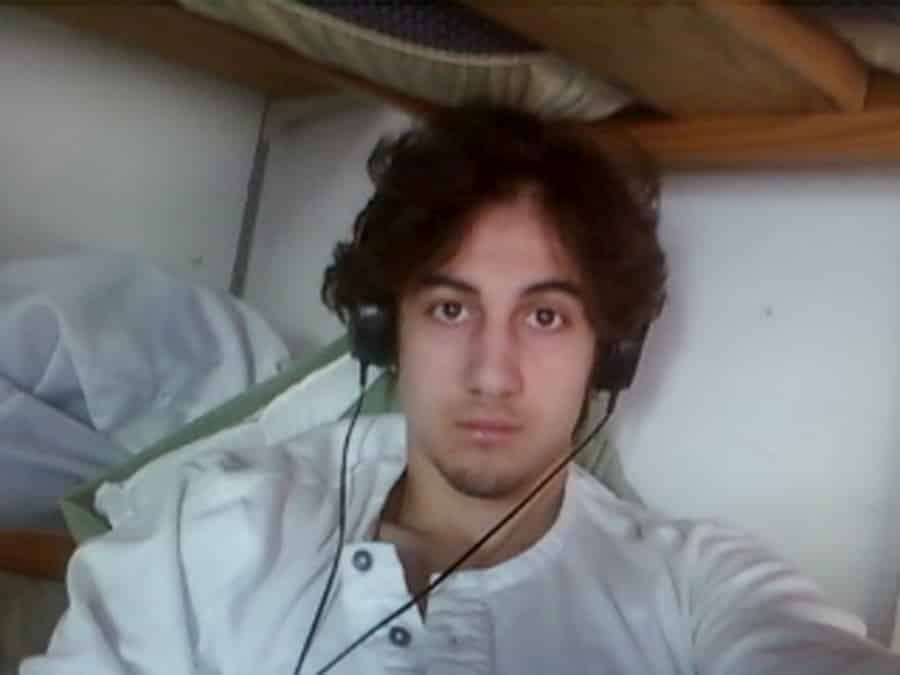A federal appeals court on Friday overturned Boston Marathon bomber Dzhokhar Tsarnaev’s death penalty sentence for helping carry out the 2013 attack, which killed three people and wounded more than 260 others.
Tsarnaev and his older brother set off a pair of homemade pressure-cooker bombs near the finish line of the world-renowned race, tearing through the packed crowd and causing many people to lose legs.
The 1st U.S. Circuit Court of Appeals in Boston upheld much of Tsarnaev’s conviction but ordered a lower-court judge to hold a new trial strictly over what sentence Tsarnaev should receive for the death penalty-eligible crimes he was convicted of.
A spokeswoman for U.S. Attorney Andrew Lelling said his office is reviewing the decision and will have more to say “in the coming days and weeks.” A lawyer for Tsarnaev did not immediately respond to a request for comment.
U.S. Circuit Judge O. Rogeriee Thompson, writing for the court, said the trial judge “fell short” in conducting the jury selection process and ensuring it could winnow out partial jurors exposed to pretrial publicity surrounding the high-profile case.
Thompson said the pervasive news coverage of the bombings and their aftermath featured “bone-chilling” photos and videos of Tsarnaev, now 27, and his brother carrying backpacks at the marathon and of those injured and killed near its finish line.
The trial judge allowed his jury to include jurors who had “already formed an opinion that Dzhokhar was guilty – and he did so in large part because they answered ‘yes’ to the question whether they could decide this high-profile case based on the evidence.”
Thompson stressed the limits of the court’s ruling. “Make no mistake: Dzhokhar will spend his remaining days locked up in prison, with the only matter remaining being whether he will die by execution,” she said.
Tsarnaev is being held at the United States’ “Supermax” prison in Florence, Colorado, a site so remote and well secured that it is nicknamed the “Alcatraz of the Rockies.”
Tsarnaev and his older brother Tamerlan sparked five days of panic in Boston on April 15, 2013, when they detonated two homemade pressure cooker bombs at the marathon’s finish line and then went into hiding.
Three nights later, as they attempted to flee the city, they sparked a new round of terror in Boston when they hijacked a car and then shot dead Massachusetts Institute of Technology police officer Sean Collier. Tsarnaev’s brother died later that night after a gunfight with police, which ended when Dzhokhar ran him over with a stolen car.
House-to-House Manhunt
Police then locked down Boston and most surrounding communities for almost 24 hours, with heavily armed officers conducting house-to-house searches through the suburb of Watertown, where the surviving brother was found hiding in a dry-docked boat in a backyard.
A federal jury in 2015 found Tsarnaev guilty of all 30 counts he faced and later determined he deserved execution for a bomb he planted that killed 8-year-old Martin Richard and 23-year-old Chinese exchange student Lingzi Lu. Restaurant manager Krystle Campbell, 29, was also killed in the attack by a bomb placed by Tamerlan.
Tsarnaev’s lawyers argued the case should not have been tried in Boston, where potential jurors were exposed to heart-wrenching, wall-to-wall media coverage about the attacks and the victims, many of whom lost limbs.
Bill and Denise Richard, whose 8-year-old son Martin was the youngest fatality in the attack, in a statement printed on the front page of the Boston Globe in 2015 had asked the U.S. Department of Justice to drop its pursuit of the death penalty, saying it would only prolong their pain.
On the day of his sentencing, Tsarnaev admitted his crimes.
“I am sorry for the lives I have taken, for the suffering that I have caused you, for the damage I have done, irreparable damage,” said Tsarnaev. “In case there is any doubt, I am guilty of this attack, along with my brother.”
(Reporting by Nate Raymond; Editing by Scott Malone, Leslie Adler and Jonathan Oatis)

























 Continue with Google
Continue with Google